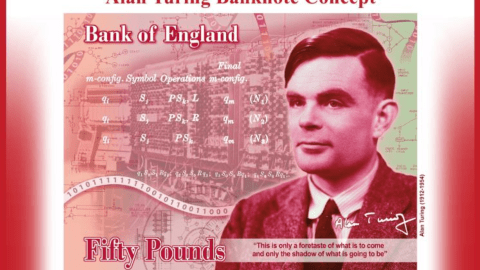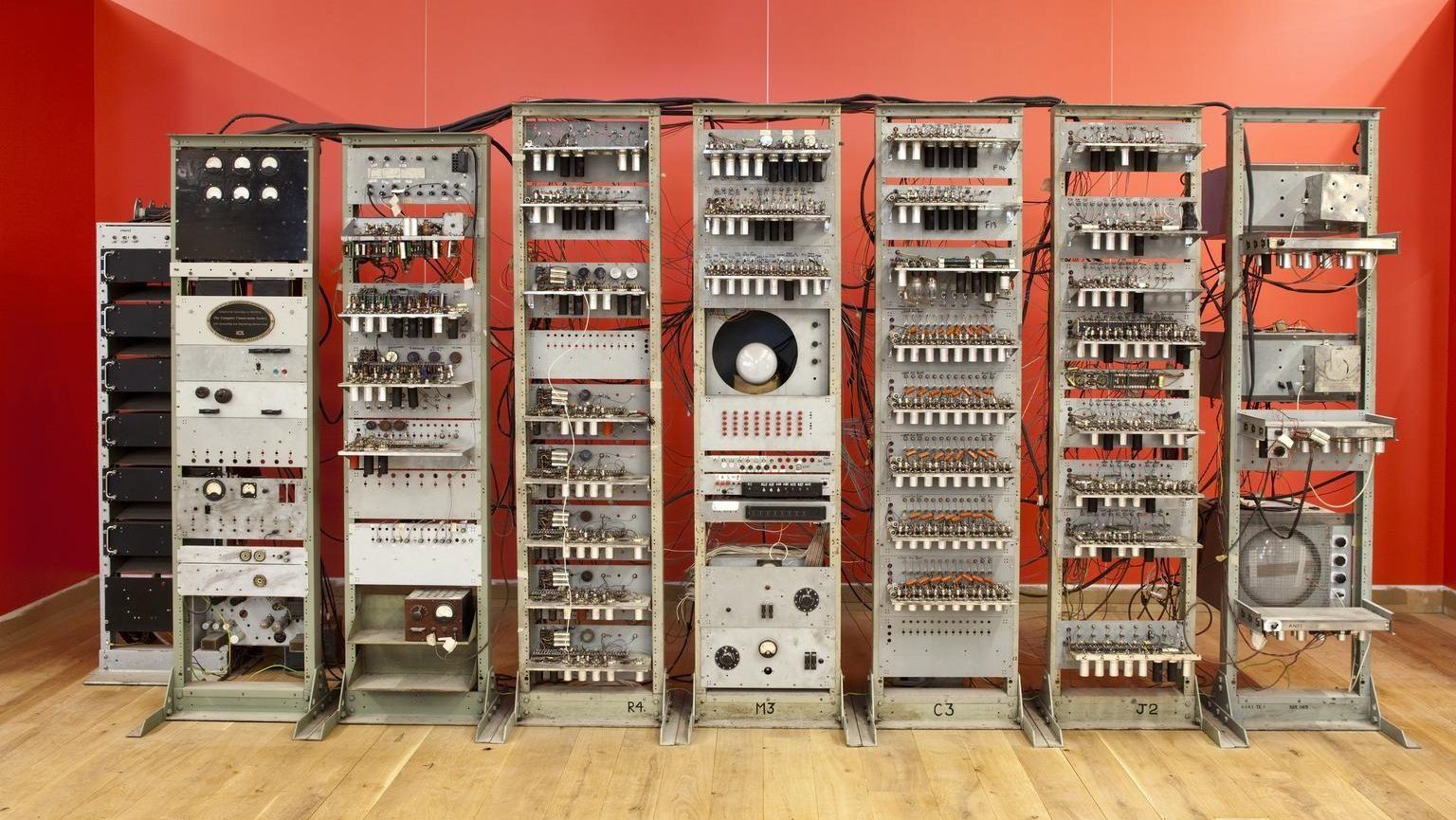Bank of England to honor Alan Turing on £50 note

Bank of England
- The late British mathematician and theoretical computer scientist Alan Turing will appear on Britain’s 50-pound note starting in 2021.
- Turing is best known for helping to crack the Nazis’ Enigma machine, a feat that’s estimated to have cut World War II short by two years.
- The British government, which chemically castrated Turing in 1952 for “homosexual acts,” officially apologized to Turing in 2009.
The Bank of England has announced that Alan Turing — the late British codebreaker who helped end World War II — will be the new face of the 50-pound note starting in 2021.
“Alan Turing was an outstanding mathematician whose work has had an enormous impact on how we live today,” said Bank of England governor Mark Carney. “As the father of computer science and artificial intelligence, as well as a war hero, Alan Turing’s contributions were far ranging and path breaking. Turing is a giant on whose shoulders so many now stand.”
As a mathematician, logician and early computer scientist, Turing helped crack the Nazis’ Enigma machine while working at Britain’s Bletchley Park as part of the Ultra intelligence outfit. The breakthrough is estimated to have cut the war short by two years. Turing is also often called the Father of Artificial Intelligence, and his Turing machine can be considered an early example of a general-purpose computer.
“His genius lay in a unique ability to link the philosophical and the abstract with the practical and the concrete,” Carney said. “All around us his legacy continues to build.”
But despite his contributions to society, British authorities, in 1952, prosecuted Turing, who was gay, for homosexual acts under a Victorian-era law commonly known as the Labouchere Amendment. Turing was forced to choose between prison or chemical castration by the injection of female hormones. He chose the latter. Two years later, Turing killed himself at the age of 41 by consuming cyanide.
“It is almost impossible to put into words the difference that Alan Turing made to society, but perhaps the most poignant example is that his work is estimated to have shortened the war by four years and saved up to 21 million lives,” John Leech, a former Liberal Democrat MP for Manchester Withington, toldThe Guardian. “And yet the way he was treated afterwards remains a national embarrassment and an example of society at its absolute worst.”
In 2009, former British Prime Minister Gordon Brown issued a national apology to Turing.
“Alan and the many thousands of other gay men who were convicted, as he was convicted, under homophobic laws, were treated terribly,” Brown said. “Over the years, millions more lived in fear in conviction. I am proud that those days are gone and that in the past 12 years this Government has done so much to make life fairer and more equal for our LGBT community. This recognition of Alan’s status as one of Britain’s most famous victims of homophobia is another step towards equality, and long overdue.”
In 2014, Queen Elizabeth II officially pardoned Alan Turing, marking the nation’s fourth royal pardon granted since World War II.
Turing wasn’t the only British scientist considered for the 50-pound note. Among the shortlist of candidates, as The Guardian reports, were Mary Anning, Paul Dirac, Rosalind Franklin, William Herschel and Caroline Herschel, Dorothy Hodgkin, Ada Lovelace and Charles Babbage, Stephen Hawking, James Clerk Maxwell, Srinivasa Ramanujan, Ernest Rutherford, and Frederick Sanger.
Campaigners and some British lawmakers had signed a 150,000-strong petition to honor a scientist of color on the 50-pound note, warning that selecting a white scientist risks sending a “damaging message that ethnic minorities are invisible.” However, Carney said the Bank intended to celebrate “all aspects of diversity.”
“We want to represent as best as possible all aspects of diversity within the country, from race, religion, creed, sexual orientation, disability and beyond,” Carney told The Guardian. “What we have today is a celebration of one of the greatest mathematicians and scientists in the United Kingdom and not just this country’s history but world history.”
In the U.K., cashless transactions are becoming increasingly common, though Carney noted that paper notes will still be around “for a very long period of time.” It’s also worth noting that, while Turing might’ve appreciated being honored on fiat currency, his contributions undoubtedly helped pave the way for cryptocurrency.





